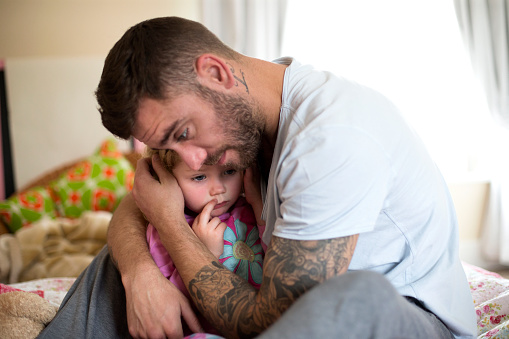Many of us are worried about how our children may be responding to the tragic school shootings, sexual abuse and disaster stories that saturate the airwaves and the internet. As a children’s media expert, when I go to schools every day, parents ask me: How can we help our children if they come to us with questions about the daily news?
While our children may not always understand the nuances and meanings of complex and disturbing topics that may appear on the news, it does affect them. Here are some things you can do with your child.
The Door’s Open: Come Talk to Me
Make sure your children know they can come to you to talk about the things they see or hear about. Gently say, “Honey, if you see something or hear something that you don’t understand or that scares you, just come ask me about it.”
Create a Safe, Supportive Environment to Communicate.
When your child does come to you, take a breath and smile. Stay calm and reassure your child physically and verbally. Remember, you haven’t done anything wrong and it’s unlikely the child will experience lasting damage from what she’s seen or heard.
Hugs and “lap time” provide physical “grounding” and go a long way toward stabilizing a child before acknowledging their feelings and assuring them that they’re safe. To let children know their feelings matter, try starting with “I understand you’re scared, this was scary.” That’s often better than, “Don’t be scared” which directs a child to stop feeling what they’re feeling.
My catch-all “soothing statement” is: “I understand that you’re feeling (sad/scared/upset). You’re safe here with me, (hug) so let’s talk if you want to.” Note: If you happen to be upset, and your emotional response to the news has worried the child, make sure you add, “I am upset (or sad or angry), but not with you.”
Don’t Shut Down Dialogue About Disturbing Topics
While my instinctive adult response may be to corral and contain the child’s emotions, we can turn these disturbing media moments into opportunities for family bonding if we talk less, listen more and ask questions.
Nicole Dreiske is an educational innovator, children’s media expert and the author of the Upside of Digital Devices: How to Make Your Child More Screen Smart, Literate and Emotionally Intelligent.





